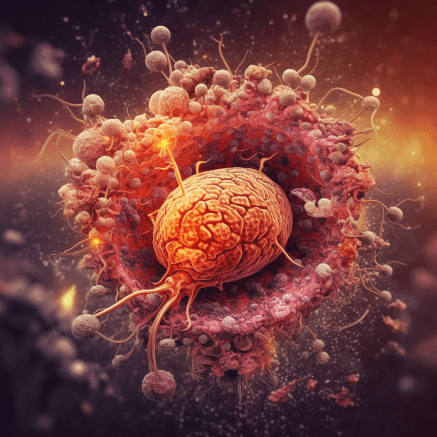
Combination Therapies for Blood Cancer treatmemt in India
29 Nov, 2023
 Healthtrip Team
Healthtrip TeamBlood cancer, also known as hematological cancer, is a group of cancers that affect the blood, bone marrow, and lymphatic system. In India, the prevalence of blood cancer is on the rise, and treatment options have evolved significantly over the years. One of the prominent approaches to treating blood cancer is the use of combination therapies. In this blog, we will delve into what combination therapies are, when they are needed, who can benefit from them, the state of blood cancer in India, as well as the benefits and side effects associated with these treatments. Additionally, we will provide some tips for managing these side effects effectively.
Most popular procedures in India
Combination therapy in the context of blood cancer refers to the use of multiple treatment modalities simultaneously or sequentially to target cancer cells more effectively. These therapies often include a combination of chemotherapy, targeted therapy, immunotherapy, and sometimes stem cell transplantation.
Wellness Treatments
Give yourself the time to relax
Lowest Prices Guaranteed!

Lowest Prices Guaranteed!
Why?
- High-Risk Blood Cancers: Combination therapies are typically considered for patients with high-risk or aggressive forms of blood cancer, such as acute myeloid leukemia (AML) or acute lymphoblastic leukemia (ALL). These aggressive cancers often require a more intensive and multi-pronged treatment approach.
- Resistance to Single-Agent Treatment: In some cases, cancer cells can become resistant to single-agent therapies. This means that the cancer no longer responds effectively to a single type of treatment. By combining different treatment approaches with distinct mechanisms of action, combination therapies can overcome this resistance and enhance their effectiveness.
- Targeted Therapies: For certain blood cancers, targeted therapies are designed to attack specific molecules or pathways involved in cancer growth. These targeted therapies are often used in combination with other treatments to provide a comprehensive attack on cancer cells.
Combination therapies are crucial in the treatment of blood cancer because they are effective against high-risk cancers, can overcome resistance to single-agent treatments, and allow for a more targeted approach by incorporating therapies that specifically attack the underlying mechanisms of cancer growth.
When are Combination Therapies Needed?
- High-risk blood cancers: Combination therapies are typically considered for patients with high-risk or aggressive forms of blood cancer, such as acute myeloid leukemia (AML) or acute lymphoblastic leukemia (ALL).
- Resistance to single-agent treatment: In cases where cancer cells have become resistant to single-agent therapies, combining different treatment approaches can enhance their effectiveness.
- Targeted therapies: For certain blood cancers, targeted therapies designed to attack specific molecules or pathways involved in cancer growth are often used in combination with other treatments.
Patients with the following conditions or circumstances may benefit from combination therapies:
- Advanced stages of blood cancer
- High-risk genetic factors
- Relapsed or refractory blood cancer
- Specific molecular markers that indicate potential responsiveness to targeted therapies
Combination Therapy in Blood Cancer Treatment in India
Combination therapy for blood cancer involves a multidimensional approach, integrating various treatment modalities to enhance overall efficacy and target the cancer more comprehensively. This strategy has revolutionized the management of blood cancers, offering improved outcomes through a more nuanced and targeted approach.
a. Chemotherapy
Chemotherapy, a cornerstone in blood cancer treatment, utilizes cytotoxic agents to specifically target and kill rapidly dividing cells, predominantly cancer cells. This category encompasses a diverse range of drugs like alkylating agents, antimetabolites, and plant alkaloids, each functioning uniquely to impede cancer cell growth and division. Depending on the cancer type and stage, chemotherapy can be administered orally, intravenously, or intrathecally (into the spinal fluid). In combination therapy, chemotherapy often serves as the foundational treatment, synergizing with other modalities to enhance overall efficacy and counteract drug resistance.
b. Radiation Therapy
Radiation therapy employs high-energy radiation to damage the DNA of cancer cells, leading to their destruction. This modality utilizes advanced techniques such as intensity-modulated radiation therapy (IMRT) and stereotactic radiosurgery, which offer precision in targeting tumors while minimizing damage to surrounding healthy tissues. Radiation therapy is particularly effective in localized or regional cancers and is often employed as a preparatory step before stem cell transplantation in combination therapy protocols.
c. Immunotherapy
Immunotherapy represents a paradigm shift in cancer treatment, aiming to harness and augment the body's immune system to combat cancer. This modality includes key therapies like checkpoint inhibitors, which block proteins preventing the immune system from attacking cancer cells; CAR T-cell therapy, involving the genetic modification of a patient's T-cells to target cancer cells; and monoclonal antibodies, which are engineered to bind to specific antigens on cancer cells. The selection and combination of immunotherapies are highly personalized, based on the specific characteristics of the cancer and the patient’s immunological profile.
d. Targeted Therapy
Targeted therapy uses drugs or other substances to precisely identify and attack cancer cells, sparing normal cells. This approach focuses on specific genes, proteins, or the tissue environment that are integral to cancer growth and survival. It includes agents like small molecule inhibitors and monoclonal antibodies, and is particularly effective in cancers that exhibit specific genetic markers or molecular abnormalities, allowing for a more focused and less toxic treatment approach.
e. Stem Cell Transplant
Stem cell transplant plays a crucial role in treating certain blood cancers by replacing diseased bone marrow with healthy marrow stem cells. There are two main types: autologous transplants, using the patient's own stem cells, and allogeneic transplants, using cells from a compatible donor. Prior to transplantation, patients undergo conditioning regimens, which may include high-dose chemotherapy and radiation therapy, to eradicate remaining cancer cells and prepare the body for the introduction of new stem cells.
Rationale Behind Combination Therapy
a. Increased Efficacy
The primary rationale for employing combination therapy in blood cancer is the increased efficacy achieved through a multi-modal attack. By simultaneously targeting different aspects of cancer cell biology, the overall success rate of the treatment is significantly enhanced. The synergistic effect of different modalities working together often results in greater effectiveness than each would achieve alone.
b. Reducing Drug Resistance
Another critical advantage of combination therapy is its ability to reduce the likelihood of cancer cells developing resistance to treatment. By attacking the cancer through multiple pathways, combination therapy reduces the chance that cancer cells will survive and adapt to a single treatment modality, thereby sustaining the treatment's effectiveness over a longer period.
c. Targeting Heterogeneity
Blood cancers are often characterized by a heterogeneous mix of cells. Combination therapy addresses this complexity by employing a broad-spectrum approach, effectively targeting different subtypes of cancer cells within the same tumor. This comprehensive strategy is key in ensuring that all cancerous cells are targeted, improving the chances of a successful treatment outcome.
In conclusion, combination therapy in blood cancer treatment exemplifies the advancements in oncology, offering a more effective, targeted, and nuanced approach to combatting these complex diseases. Through its multidimensional treatment modalities, combination therapy addresses the diverse challenges posed by blood cancers, paving the way for more personalized and successful treatment outcomes.
Designing a Combination Therapy Regimen
The process of designing a combination therapy regimen involves:
- Identifying the Type of Cancer: The specific type of blood cancer (e.g., leukemia, lymphoma, myeloma) determines the appropriate combination of therapies.
- Genetic and Molecular Profiling: Advanced testing to identify specific mutations or markers in the cancer cells can help tailor the treatment to the patient's specific cancer type.
- Evaluating Patient Health: The patient’s overall health, age, and other medical conditions influence the choice of therapies and their dosages.
Combination therapy in blood cancer treatment represents the forefront of personalized medicine. It embodies a strategic, multi-faceted approach that significantly enhances the prospects of treatment success. The ongoing evolution in this field, driven by advances in cancer biology and pharmacology, promises to continually refine and improve the efficacy of blood cancer treatments, offering renewed hope to patients worldwide.
Current Trends in India
In India, there has been significant progress in the field of combination therapies for blood cancers. The country's healthcare system is increasingly adopting these advanced treatments. Here are a few key points:
- Adoption of International Protocols: Indian oncologists are increasingly aligning with international protocols, incorporating advanced combination therapies that have shown success in other parts of the world.
- Customized Treatment Plans: With advances in genetic and molecular profiling, treatments in India are becoming more personalized. Patients are receiving combination therapies tailored to their specific type of blood cancer and genetic profile.
- Availability of New Drugs: Many novel drugs, which are a part of combination therapy protocols, are now available in India. This includes targeted therapies and immunotherapies that have transformed the treatment landscape for blood cancers.
Benefits of Combination Therapies:
- Improved treatment outcomes: Combining multiple treatment modalities can enhance the chances of remission and overall survival.
- Reduced risk of resistance: The use of different mechanisms of action in combination therapies can make it harder for cancer cells to develop resistance to treatment.
- Tailored treatment: Combination therapies can be customized based on a patient's specific cancer type, genetic makeup, and response to previous treatments.
Side Effects of Combination Therapies:
Combination therapies for blood cancer can have side effects, which may vary depending on the specific treatments used. Common side effects include:
- Nausea and vomiting
- Fatigue
- Hair loss
- Anemia
- Infections
- Bleeding and clotting problems
- Skin changes
- Neuropathy
Tips for Managing Side Effects:
- Communicate with your healthcare team: Inform them about any side effects promptly so they can adjust your treatment plan accordingly.
- Medication management: Take prescribed medications as directed, and discuss with your doctor any over-the-counter remedies or supplements you plan to use.
- Supportive care: Seek support from a dietitian, physical therapist, or counselor to help manage side effects like nausea, fatigue, and emotional distress.
- Maintain a healthy lifestyle: Eating a balanced diet, staying physically active, and managing stress can help mitigate side effects and improve overall well-being.
Embark on a journey of hope and advanced care with HealthTrip in India for your blood cancer treatment. Experience cutting-edge combination therapies, expert oncologists, the best hospitals,and personalized care, all within state-of-the-art facilities. Choose HealthTrip for an affordable, comprehensive treatment experience tailored to your unique needs. Start your path to recovery today with India’s leading healthcare specialists.
Combination therapies have ushered in a new era of hope and progress in the realm of blood cancer treatment in India. However, it is imperative to remain cognizant of the associated side effects and the importance of their meticulous management. By fostering a collaborative partnership with healthcare providers and adopting a holistic approach to cancer care, patients can navigate the intricate challenges linked to blood cancer treatment while enhancing their quality of life. Timely diagnosis and intervention remain paramount, underlining the significance of raising awareness to combat the pervasive impact of blood cancer in India
Related Blogs

Unparalleled Medical Care at VPS Lakeshore Hospital, Kerala
Get the best medical treatment at VPS Lakeshore Hospital, Kerala

Bladder Cancer Radiation Therapy Side Effects Management
Learn how to manage side effects of radiation therapy for

Managing Side Effects of Chemotherapy
Coping strategies and support systems for chemotherapy side effects.

Advanced Colorectal Cancer Treatments at Bumrungrad Hospital
Colorectal cancer, which affects the colon and rectum, is a

UAE Hospitals: Personalizing Cancer Care with Data Analytics
Traditional cancer treatments can often feel like a “one-size-fits-all” solution,

Top Treatment Options for Stomach Cancer
Are you or someone you care about grappling with stomach










